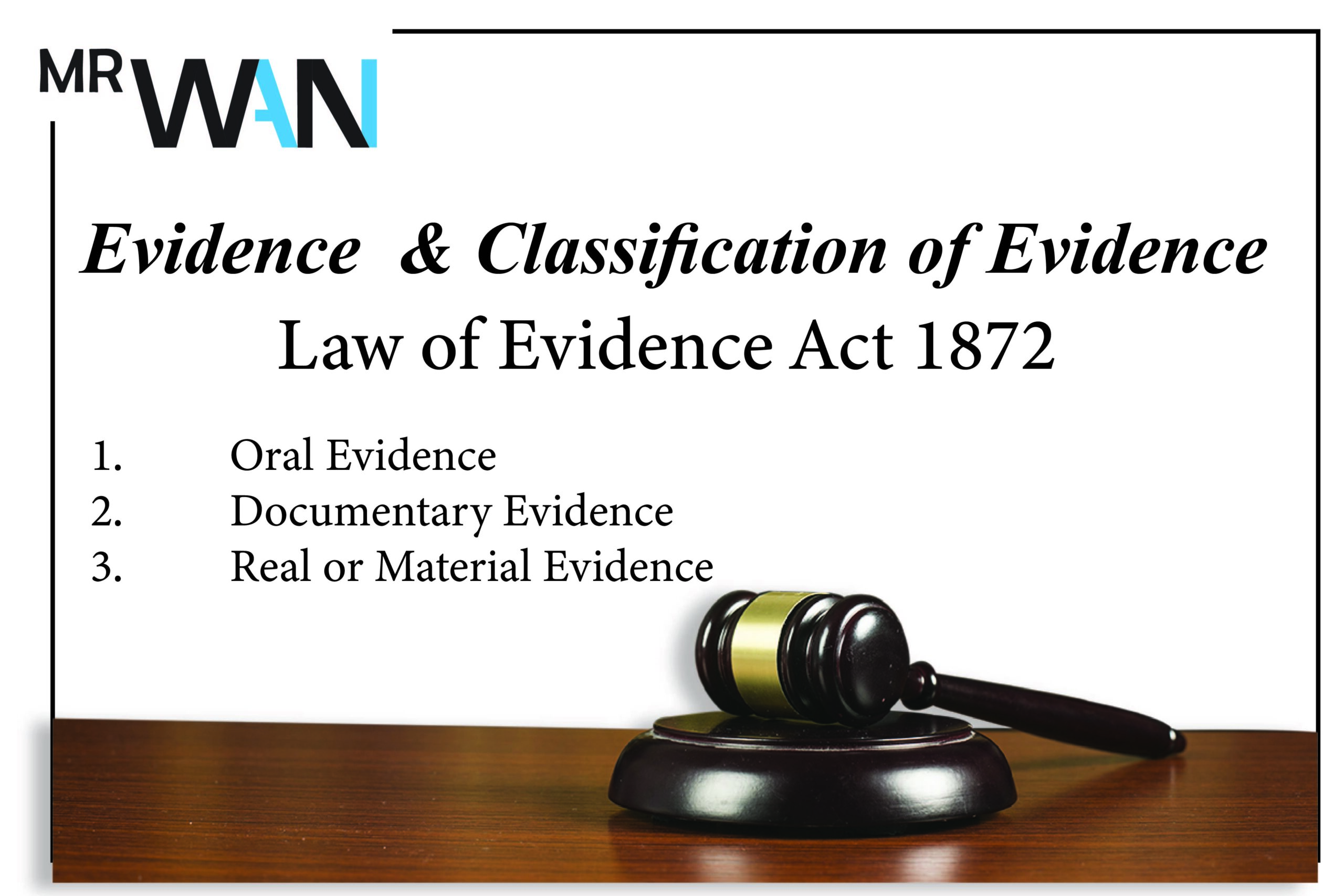Evidence
In law, evidence refers to any information that can be used to prove or disprove a fact in issue or a collateral fact. It’s the material presented in court to convince the judge or jury that a specific contention is true. This can include witness testimony, documents, physical objects, and other forms of data.
Question of Facts will be proved or disproved through evidence. The law of evidence comes the purview of adjective law.
Law of Evidence Act 1872
The evidence act originally passed by Birtish parliament in 1872, contains a set of rules and allied issues governing admissibility of any evidence in the court of law. The Evidence act of 1872 is mainly based upon the firm work by Sir James Fitz James Stephen, who was the founding father of this comprehensive piece of legislation.
The Evidence Act, Identified as Act No, 1 of 1872 and called the Evidence Act, 1872, has eleven chapters and 167 sections, and comes into force on 1st September 1872.
In 1984 it was repealed in Pakistan by the evidence order 1984 (also known as the “Qanun-e-Shahadat”). It also applies to all judicial proceedings in the court, including the court martial as well. Zia ul Haq converted law of evidence by giving Islamic touch into Qanun-e- Shahdat
Classification of Evidence
From the view pont of definition of Evidence , referred section 03 of the provision of evidence act, 1872.
- Oral Evidence
- Documentary Evidence
- Real or Material Evidence
Oral Evidence
Oral testimony or evidence is the evidence which is given in a court by a witness in front of judge regarding the subject matter. It is also called parol evidence. Oral statement regarding a case is a oral evidence. Such evidence has no documentary.
Direct Evidence:
Direct evidence is the evidence such as those evidence made by some individuals. The person who made the evidence, speaks from his or her experience or personal knowledge with regards to the subject matter. The direct evidence declares that a certain facts exists.
Indirect or Circumstantial Evidence
The evidence that requires an inference to connect to a conclusion or facts. In other words, such type of evidence that establish immediately collateral facts from which the main fact may be inferred . it is also called circumstantial evidence.
Hearsay Evidence:
Hearsay is an out of court statement, which is made in court, to prove the truth of the matter asserted (displayed). In other words, hearsay evidence is one kind of statement, that was made other than by a witness while testifying at the hearing in question and that is offered to prove the truth of the matter stated. Such evidence which is not happen Infront of judge.
Documentary Evidence
Documentary evidence is any evidence introduced at a trial in the form of documents. Although this term is most widely understood to mean writing on paper(such as an invoice, a contract or a will), the term actually includes any media by which information can be preserved.
Primary documentary evidence
Secondary Documentary evidence
Primary documentary evidence is the evidence of original documents, secondary documentary is the documentary evidence is the evidence of copies etc of document which admissible under certain circumstance.
Expert Evidence
Opinion of experts related to the case. For example if some is beaten by someone- doctor here is an expert- his opinion is expert evidence.
Read More
What is International Relations(IR), Definitions, Scope and importance of IR.
For latest articles notification join our WhatsApp channel

